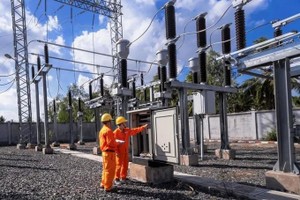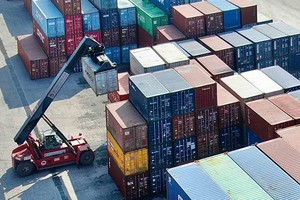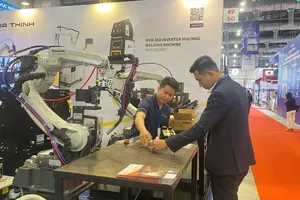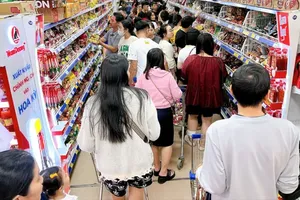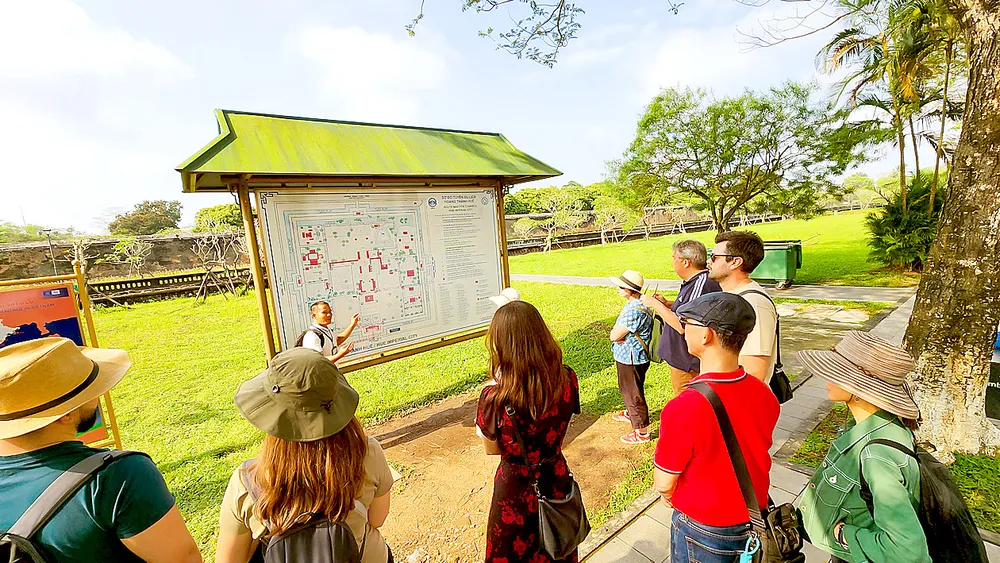
“Erasing” the off-season in tourism
In Da Nang City, despite the cold, rainy season, tourism remains vibrant with numerous events, conferences, and seminars. Business travelers (MICE) and independent tourists are arriving in increasing numbers. They not only stay in hotels for seminars and conferences but also explore, shop, and enjoy various popular attractions.
Mr. Nguyen Duc Quynh, General Director of Furama Resort Da Nang, noted that after the summer holidays, as the new school year begins, domestic tourist numbers drop significantly. This is largely due to a general reluctance to travel in the cold, rainy season, leading to a quieter domestic market in the year's final months. However, this lull is offset by an influx of international tourists, especially with new direct flights to Malaysia and India. Some hotels are already fully booked for Christmas and New Year's celebrations.
Similarly, tours centered around world cultural heritage sites like the Imperial City of Hue and Hue Royal Court Music remain key attractions for international tourists in the final months of the year. Reports indicate that visitors to Hue are particularly enthusiastic about experiencing the local lifestyle through new tourism offerings, such as farmhouse tours, lagoon tours, and community-based tourism. They actively participate in preparing traditional Hue dishes and crafting local handicrafts.
In Quang Nam Province, where the climate is warm year-round, international tourists frequently choose the region for golfing, especially during the winter season. Mr. Steve Wolstenholme, Chairman and CEO of Hoiana Resort & Golf, said that this is a potential direction for Quang Nam to develop off-season tourism, particularly toward the end of the year when domestic travel slows down.
A well-suited strategy
Mr. Cao Tri Dung, Chairman of the Da Nang Tourism Association, highlighted that Da Nang’s natural resources, infrastructure, service quality, and destination management are highly sustainable, offering a distinct advantage over other locations. This competitive edge plays a crucial role in attracting visitors. Events are primarily organized to stimulate demand during periods when an increase in high-sensitivity tourists is needed. Visitors from European, Australian, and American markets tend to seek out natural attractions, cultural experiences, and high-quality services, prompting businesses to focus on enhancing the overall experience for these travelers.
Ms. Nguyen Thi Hoai An, Deputy Director of the Da Nang Department of Tourism, emphasized that the city’s tourism sector has evolved by developing new products and hosting various events throughout the year to attract visitors. Recently, major events and a steady flow of MICE groups have helped close the gap between peak and off-seasons. Additionally, a new direct flight to Kuala Lumpur has improved connectivity with Europe, North America, and the Middle East, creating further opportunities to draw more international tourists to Da Nang.
Mr. Nguyen Thanh Hong, Director of the Department of Culture, Sports, and Tourism of Quang Nam Province, noted that Australia remains a traditional market, ranking third among the top ten international markets for Quang Nam. International tourists show a particular interest in the province’s cultural tourism, golf tourism, and sustainable green tourism. To enhance its attractiveness, Quang Nam is hosting the second phase of its tourism stimulus program, "Mua Vang Xu Quang" (The Golden Season of the Quang region), from September to the end of November. This initiative offers visitors unique experiences tied to the region’s golden season, including attractions, such as the ancient, moss-covered town, rural countryside tours, Hoi An during flood season, and the New Rice Festival.
Mr. Nguyen Van Phuc, Director of the Department of Tourism in Thua Thien Hue Province, explained that tourists visiting during this season are particularly attracted to cultural and heritage experiences. Consequently, the province’s tourism sector continues to develop and refine products focused on sustainable tourism through initiatives aiming to reduce plastic waste, protect the environment, and promote biodiversity. The province is also introducing green tours and wellness tourism connected to cultural heritage, providing visitors with a refreshing and healthy atmosphere. Furthermore, the tourism sector is enhancing cultural exchange events and festivals, offering tourists opportunities to engage with and gain a deeper understanding of the unique culture of the Imperial City of Hue.
















